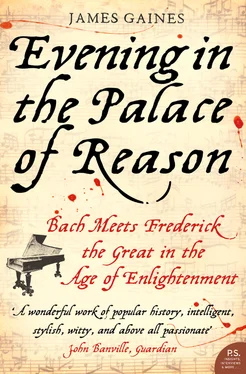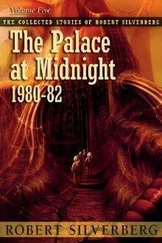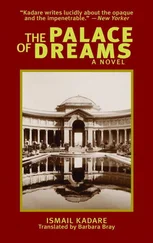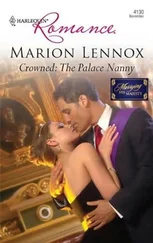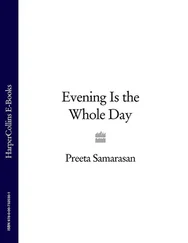
WHEN FREDERICK SAW “old Bach’s” name on the visitors’ list, he called for the composer to be brought to the palace immediately. Bach no doubt was looking forward to settling in at Carl’s house for the evening—he would have been exhausted—but this was a summons, not an invitation. What followed was reported in a palace press release that was picked up by newspapers in Prussia, Saxony, and other German territories.
One hears from Potsdam that last Sunday the famous Kapellmeister from Leipzig, Herr Bach, arrived [at the castle] … His August self [Frederick] went, at [Bach’s] entrance, to the so-called Forte et Piano, condescending also to play, in His Most August Person and without any preparation, a theme for the Kapellmeister Bach, which he should execute in a fugue. This was done so happily by the aforementioned Kapellmeister that not only His Majesty was pleased to show his satisfaction thereat, but also all those present were seized with astonishment. Herr Bach found the theme propounded to him so exceedingly beautiful that he intends to set it down on paper as a regular fugue and have it engraved on copper …
The account is incomplete, and the blur of Baroque rhetoric somewhat obscures the story. The facts are these: Frederick gave Bach an impossibly long and complex musical figure and asked the old master to make a three-part fugue of it, which was a bit like giving word salad to a poet and asking for a sonnet. So difficult was the figure Bach was given that the twentieth century’s foremost composer of counterpoint, Arnold Schoenberg, marveled at the fact that it had been so cleverly contrived that it “did not admit one single canonic imitation”—in other words, that the Royal Theme, as it has come to be known, was constructed to be as resistant to counterpoint as possible. Still, Bach managed, with almost unimaginable ingenuity, to do it, even alluding to the king’s taste by setting off his intricate counterpoint with a few galant flourishes.
When Bach had finished the three-part fugue, while his audience of virtuosi was still “seized with astonishment,” Frederick asked Bach if he could go himself one better, this time making the theme into a fugue for six voices. Knowing instantly that he had no hope of doing such a vastly more complex improvisation (Bach had never even written a six-part fugue for keyboard), he demurred with the observation that not every subject is suitable for improvisation in six voices; he said he would have to work it out on paper and send it to Frederick later. Clearly no one would have faulted him for turning aside Frederick’s challenge—every musician and especially the composers in the room would have realized just how ridiculously demanding it was—but there is no other recorded instance in Bach’s life when he had had to concede such a defeat, and this was an exceedingly proud man, the age’s acknowledged master of both fugue and improvisation, before an audience of fellow virtuosi as well as his two oldest sons.
Bach’s embarrassment may have been the reason he was invited to Frederick’s court in the first place. Writing two hundred years later, Arnold Schoenberg found in the Royal Theme’s uncanny complexity the evidence of a malicious scheme to humiliate Bach, to beat him at his own game. Schoenberg’s even darker conclusion, based on the belief that Frederick could never have written such an insidiously difficult theme by himself, was that the author could have been none other than Bach’s son Carl, the only person in Frederick’s court with a knowledge of counterpoint sufficient to trump his father’s. “Whether malice of his own induced [Carl], or whether the ‘joke’ was ordered by the king, can probably be proved only psychologically,” Schoenberg wrote, concluding from Frederick’s sadistic personality and bellicose martial history that his motive was “to enjoy the helplessness of the victim of his … well-prepared trap.”
“Johann Sebastian must have recognized the bad trick,” Schoenberg continued. “That he calls his ‘Offering’ a Musikalisches Opfer is very peculiar, because the German word Opfer has a double meaning: ‘offering,’ or rather ‘sacrifice,’ and ‘victim’—Johann Sebastian knew that he had become the victim of a grand seigneur’s ‘joke.’ ”
Schoenberg’s theory that Frederick wished to embarrass Bach cannot be proved or disproved, but some unfortunate facts support it. The Prussian king was infamous for mean-spiritedly baiting even (or perhaps especially) those for whom he had the greatest respect. As Voltaire put it at one of the many low points in their relationship, when Frederick said you were his friend, “he means ‘my slave.’ My dear friend means ‘you mean less than nothing to me.’ … Come to dinner means, ‘I feel like making fun of you tonight.’ ” Schoenberg’s theory that the author of the theme was actually Bach’s son Carl, though equally impossible to prove, is also at least plausible. More than once Carl seemed to feel that his respect and affection for his father was in some measure unrequited, a sense of filial injury that often afflicts second sons. There would have been an Oedipal aspect to such a “victory” over Bach for Frederick as well. When they met, Bach was roughly the age Frederick’s father would have been, a father at whose hands Frederick had suffered the worst kind of abuse, including the greatest trauma of his young life.
Whoever the author of the Royal Theme may have been, the nature of it leaves no doubt that Frederick meant to give history’s greatest master of counterpoint the most taxing possible challenge to his art, and it is easy to imagine that, as his carriage rattled over the rutted roads from Potsdam back to Leipzig, Bach was already working out the puzzle Frederick had presented to him. Certainly he lost no time working on it once he was back in Leipzig. At his composing desk in the southwest corner of the second floor of the St. Thomas School—the noise of the student dormitory barely muffled by a thin wall and the ad hoc insulation of bookshelves heaped with music—he finished his Musical Offering to Frederick within a fortnight, turning the king’s “joke,” if that is what it was, back upon him with all the force at his command.
At the end of a long life spent practicing the art of conveying words in music, this was a great deal of force indeed, and the very quickness of Bach’s work suggests how urgent the project was to him. In the end, it implicated the most dissonant themes in his life and in the king’s as well: among others, the proper relations between art and power, and the competition between fathers and sons. Perhaps most important, the work addresses the point of greatest conflict between these two men and one of the thorniest of all the issues raised by the Enlightenment, for the eighteenth century and for its latter-day descendants: the role of belief in a world of reason. A work that may be read as a kind of last will and testament, Bach’s Musical Offering leaves us, among other things, a compelling case for the following proposition: that a world without a sense of the transcendent and mysterious, a universe ultimately discoverable through reason alone, can only be a barren place; and that the music sounding forth from such a world might be very pretty, but it can never be beautiful.
We may be grateful that Bach had spent a lifetime developing a musical language in which to say all that without fear of discovery or retribution, because his Musical Offering to Frederick represents as stark a rebuke of his beliefs and worldview as an absolute monarch has ever received. Not incidentally, it is also one of the great works of art in the history of music.
Читать дальше
